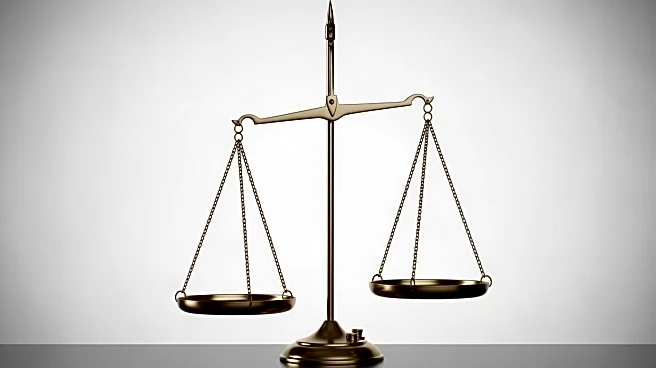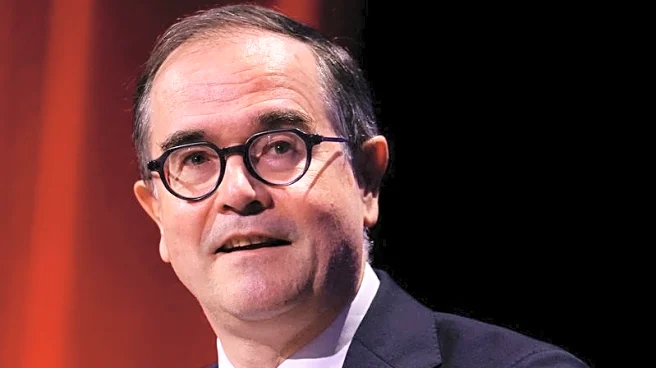What's Happening?
Sean Dunn, known as the D.C. 'Sandwich Guy,' was acquitted of charges related to an incident where he threw a Subway sandwich at a U.S. Border Patrol agent. The event, which took place in Washington D.C.'s U Street NW nightlife area, quickly went viral,
drawing significant public attention. Dunn, a former Justice Department paralegal and Air Force veteran, faced charges of assaulting a federal officer, which were later downgraded to a misdemeanor. Despite the acquittal, Dunn's actions and subsequent arrest have sparked discussions about the federal judiciary's role and the Trump administration's approach to law enforcement. Dunn expressed discomfort with the attention and the 'hero' narrative that emerged from the incident.
Why It's Important?
The case highlights tensions between federal law enforcement and public protest, particularly during the Trump administration's tenure. Dunn's acquittal may be seen as a repudiation of aggressive federal prosecution tactics, especially in politically charged cases. The incident underscores the broader societal debate over the use of force by federal agents and the rights of individuals to protest. Dunn's case also reflects the personal and professional consequences faced by individuals involved in high-profile legal battles, as he lost his job and faced financial difficulties. The outcome may influence future legal strategies and public perceptions of justice in politically sensitive cases.
What's Next?
Following his acquittal, Dunn is focused on rebuilding his life, seeking employment, and moving past the incident. The case may prompt further scrutiny of federal prosecution practices, particularly in cases involving political dissent. Legal experts and civil rights advocates may use Dunn's case to argue for reforms in how such cases are handled. Additionally, the public and media attention surrounding the incident could lead to increased advocacy for the rights of protesters and a reevaluation of law enforcement tactics in similar situations.
Beyond the Headlines
Dunn's case raises questions about the balance between national security and individual rights, especially in the context of protest and dissent. The incident also highlights the role of social media in shaping public narratives and influencing legal outcomes. As the judiciary continues to navigate these complex issues, Dunn's story may serve as a cautionary tale about the personal costs of becoming a symbol in a larger political struggle.


















